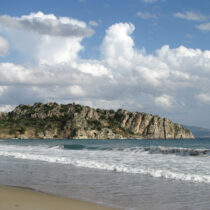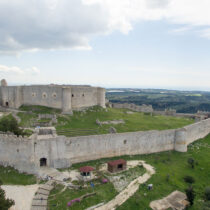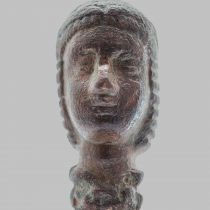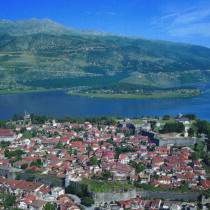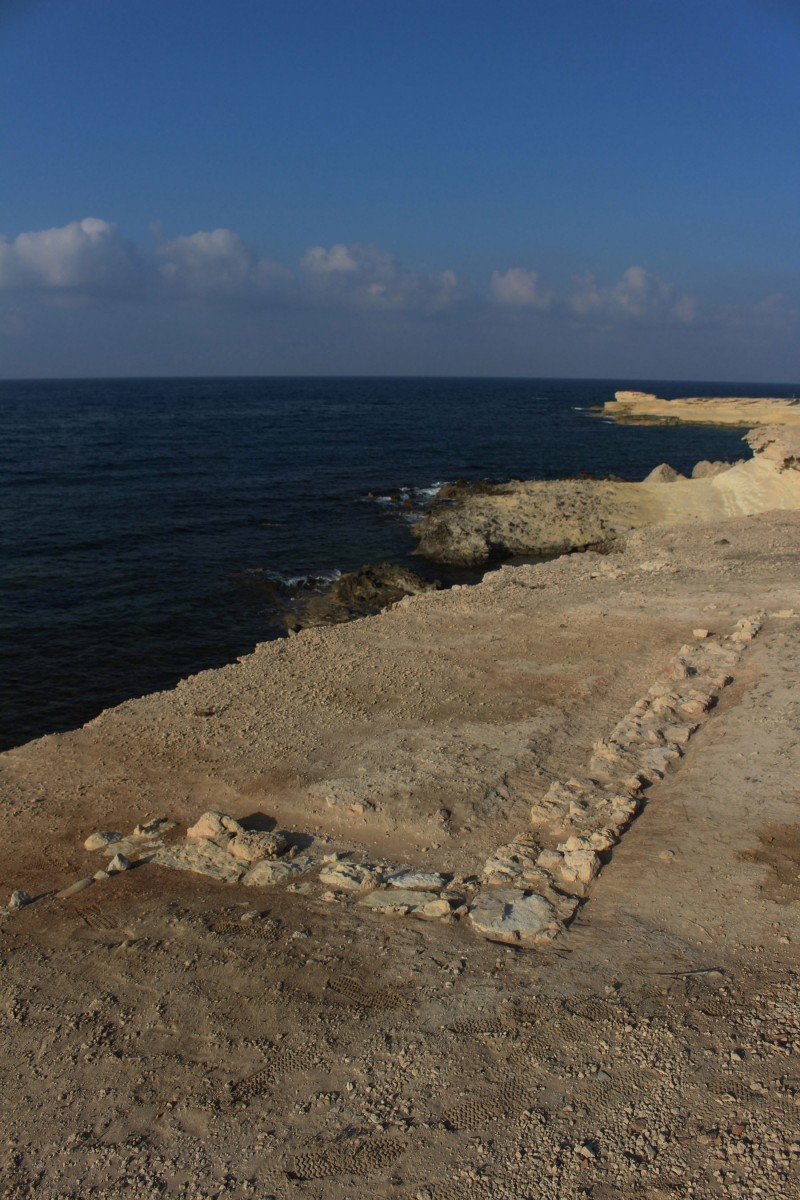Ancient South Carolina whale yields secrets to filter feeding’s origins
Researchers have described an extinct relative of baleen whales in Current Biology on June 29 offering new insight into how baleen first evolved.
Excavations at Akrotiri-Dreamer’s Bay
2017 excavations at Akrotiri-Dreamer’s Bay, in the Limassol District have been completed.
Mysterious death rituals at Göbekli Tepe
Anthropologists from the German Archaeological Institute discover deep grooves carved into 11,000-year-old human skulls.
Neolithic settlement remains discovered in Valais, Switzerland
Archaeologists in Switzerland have discovered remains of human habitation dating back to the Neolithic period.
Unique figurine from seven thousand years ago discovered in arable field
While walking in a field in one of the villages of Podkarpacie, an archaeologist from Wielkopolska came across a fragment of a clay figurine from around 7 thousand years ago, depicting a man...
Postgraduate Work-in-Progress Seminar Institute of Classical Studies London
The Institute of Classical Studies / School of Advanced Study of the University of London invites abstracts from postgraduate students who would like to present a paper at the Postgraduate Work-in-Progress Seminar.
Researchers document early, permananet human settlement in Andes
Using five different scientific approaches, a team of researchers has given considerable support to the idea that humans lived year-round in the Andean highlands of South America over 7,000 years ago.
A skull with history: A fossil sheds light on the origin of the neocortex
Today, mammals possess large and efficient brains. But, what was the bauplan of the brain of their far relatives, the therapsids? When and why evolved the neocortex?
New bone identification method will help the study of past human societies
A new technique enabling archaeologists to distinguish between the bones of sheep and goats has been developed by researchers at the University of Sheffield.
Pompeian houses found in Rome during metro line excavations
During reinforcement works on the Aurelian Walls near the new metro Line C in Rome, archaeologists discovered an ancient solarium, in an excellent preservation state.
Previously unknown extinction of marine megafauna discovered
This study shows that marine megafauna were far more vulnerable to global environmental changes in the recent geological past than had previously been assumed.
New discovery presented at Machu Picchu
Archaeologists working in Machu Picchu, Peru, revealed last week a paved floor and vessel fragments discovered recently.
People have been using money for 40,000 years
When studying the evolution of currency the first sign of exchanging goods is traced back to trading tools for flint weapons in the Upper Paleolithic.
Ancient Devon community had a taste for exotic food and drink
Devon farmers who made their home in the same remote location for 1,200 years had a taste for exotic imported food and drink, archaeologists have found.
Scientists recreate Californian Indian water bottles to study ancient exposure to chemicals
Water bottles replicated in the traditional method used by Native Californian Indians reveal that the manufacturing process may have been detrimental to the health of these people.
Prehistoric ritual area around burial mound is discovered
Archaeologists have discovered that a prehistoric burial mound is surrounded by a cemetery of similar burials.
A new, interactive model of the Antikythera Mechanism
A new, interactive model of the Antikythera Mechanism is now part of the exhibition VOYAGE-Greek Shipbuilding and Seafaring from antiquity to modern times and the special section devoted to the most complex mechanism of antiquity.
LILIANE LIJN Early Events: Five Narrative Sculptures
In Early Events (1996-2000), Liliane Lijn brings to Summerhall’s 2017 Festival five narrative sculptures, exhibited together for the first time in the UK, that form part of a series in which the artist examines her psyche. Like shards of brilliant glass, Lijn discovers early memories embedded within different parts of her body.
Technical heritage and Cultural Identity
The ICOM International Committee for Museums and Collections of Science and Technology (CIMUSET) 45th annual Conference will take place in Rabat, Morocco, on December 5-8 2017.
Revealing the face of Tudor Dublin
Important new information about a series of burials, uncovered in July 2014, most significantly that all are of probable Tudor date (1485–1603).
New evidence on the diet of the Homo antecessor from Atapuerca
The ‘Homo antecessor’, a hominin species that inhabited the Iberian Peninsula around 800,000 years ago, would have a mechanically more demanding diet than other hominin species in Europe and the African continent.
Egyptian dignitary’s mummified head and brain have been reconstructed
Archaeologists and forensic specialists have reconstructed the face and brain of an ancient Egyptian mummy at the Egyptian Museum in Turin.

